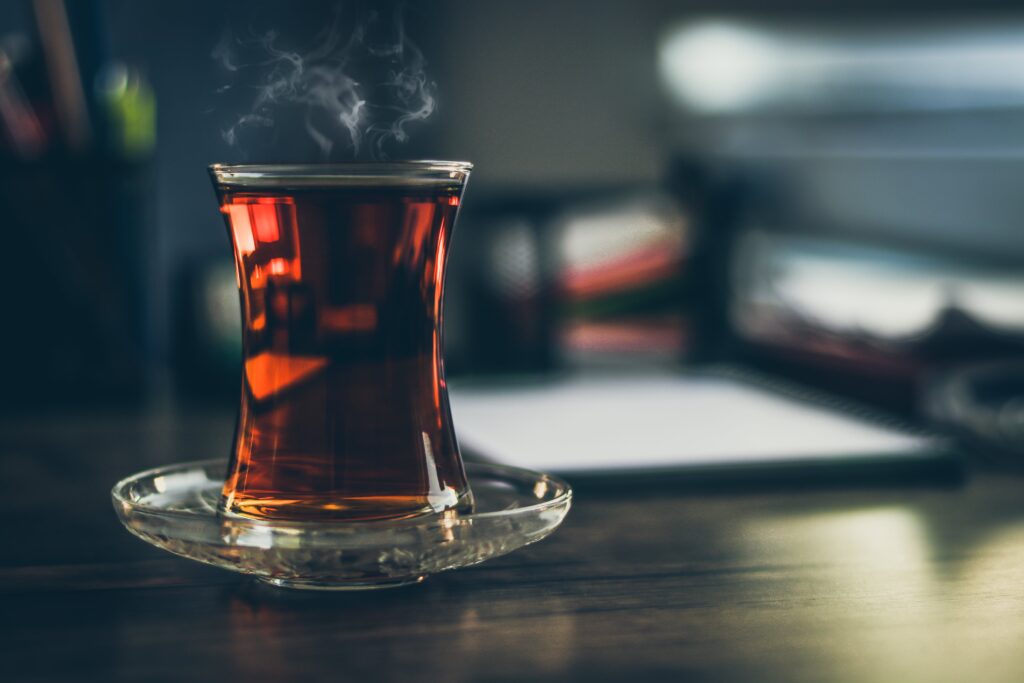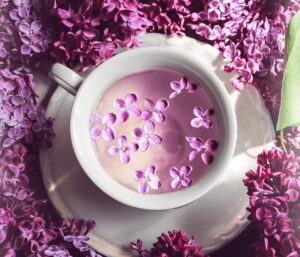You might’ve heard whispers about the miraculous properties of tea, from aiding weight loss to improving skin health, but is there any truth to these claims? In a world where wellness and self-care are more important than ever, understanding the effects of everyday habits, such as drinking tea, can empower us to make healthier choices.
Tea is believed to offer numerous benefits to females. Tea, when prepared in the right manner and consumed in controlled quantities may have offer a plethora of benefits. It can improve metabolism and digestive health, which can assist in weight loss. Tea also helps in maintaining heart health. Some teas can be great in regulating mood and in balancing hormones. Some teas are also linked to skin and bone health.
This blog post dives into the scientific evidence behind tea and women’s health, offering you a refreshing look at the much-loved cup of tea. So, are you ready to unravel the truth and pour yourself a steaming cup of knowledge?
Read through to immerse yourself in the world of tea, its health effects, and the unique benefits it may offer for females.
Is tea good for women?
Yes, normally, tea is good for women. It is one of the most widely consumed beverages globally, has a long-standing reputation for its potential health benefits. It is packed with bioactive compounds that may offer specific advantages for women’s health. However, it’s important to remember that moderation is key, and tea can’t replace a balanced diet and regular exercise.
- Boosts Heart Health: A study in the European Journal of Preventive Cardiology noted that habitual tea drinkers, particularly women, have a significantly lower risk of heart disease and stroke. Tea’s heart-healthy effect is mainly attributed to its rich content of flavonoids, a type of antioxidant known to improve heart health.
- Aids in Weight Management: Several studies suggest that compounds in green tea may aid weight loss by boosting metabolism. A review study found that catechins or an epigallocatechin gallate–caffeine mixture have a small positive effect on weight loss and weight maintenance.
- Promotes Bone Health: Women who regularly drank tea had higher bone mineral density than non-tea drinkers. The tea polyphenols, including flavonoids, may protect against bone loss and osteoporosis.
- Improves Mood and Mental Alertness: According to a review, tea’s natural components like caffeine and L-theanine work together to improve brain function, enhance mood, and promote relaxation.
- May Lower Risk of Type 2 Diabetes: Regular tea consumption, especially green tea, is associated with a lower risk of type 2 diabetes, according to a meta-analysis. This is likely due to tea’s ability to improve insulin sensitivity.
- Promotes Skin Health: A study found that green tea polyphenols could protect the skin against harmful UV radiation, improving skin quality and health.
- Might Reduce Risk of Certain Cancers: Regular consumption of tea might lower the risk of certain types of cancer. For instance, a review found a possible inverse relationship between green tea intake and breast cancer risk.
- Supports Digestive Health: Tea, particularly green and peppermint tea, is known for its soothing effects on the digestive system. A review notes that these teas can help reduce inflammation in the gut and improve digestion.
- May Reduce Menopausal Symptoms: Some studies suggest that the phytoestrogenic properties of tea may help alleviate menopausal symptoms such as hot flushes.
- Boosts Immunity: A study found that tea can prime the immune system to attack invading bacteria, viruses, and fungi more effectively. This is attributed to a compound called L-theanine found in tea.
Remember, while these benefits are significant, they should be part of a holistic approach to health. And it’s always a good idea to consult a healthcare professional if you have any concerns about your tea-drinking habits.
What tea is the best for ladies?
When it comes to determining the “best” tea for ladies, it largely depends on individual preferences and specific health goals. However, there are a few types of tea that are often recommended for their potential benefits for women’s health:
- Green Tea: Known for its high concentration of antioxidants, green tea is often hailed for its numerous health benefits. It may aid in weight management, promote heart health, support brain function, and offer potential protection against certain types of cancer.
- Black Tea: With its bold flavor and rich content of flavonoids, black tea is a popular choice. It may help improve heart health, boost immune function, and promote digestive health.
- White Tea: White tea is minimally processed and contains a high level of antioxidants. It may support skin health, contribute to weight management, and promote cardiovascular health.
- Herbal Teas: Herbal teas such as chamomile, peppermint, ginger, and rooibos are known for their calming properties, aiding digestion, and promoting relaxation. These teas are often caffeine-free and can be enjoyed at any time of the day.
- Herbal Blends: Many herbal blends specifically target women’s health concerns. For example, blends with ingredients like raspberry leaf, nettle, or dong quai are often recommended for menstrual health and hormonal balance.
Ultimately, the best tea for women depends on individual preferences, health goals, and any specific concerns. It’s essential to explore different types of tea and choose the ones that align with your taste preferences and cater to your unique health needs.
Yes, black tea can be beneficial for females. Here are some potential health benefits associated with black tea:
- Heart Health: Black tea contains flavonoids that may help improve heart health by reducing the risk of heart disease and stroke. Regular consumption of black tea has been associated with improved cardiovascular health markers, such as lower blood pressure and cholesterol levels.
- Antioxidant Properties: Black tea is rich in antioxidants, such as theaflavins and thearubigins, which help protect the body against damage from free radicals. These antioxidants may contribute to overall health and well-being.
- Digestive Health: Black tea contains tannins that can have a soothing effect on the digestive system. It may help relieve digestive discomfort, reduce inflammation, and support healthy gut function.
- Oral Health: Black tea has been found to possess antimicrobial properties that can help fight oral bacteria, potentially reducing the risk of dental issues like cavities and gum disease. It may also help freshen breath.
- Mental Alertness: Black tea contains caffeine, which can enhance mental alertness, focus, and cognitive performance. It may provide a natural energy boost and help combat fatigue.
- Stress Relief: Drinking black tea can have a calming effect and help reduce stress. The amino acid L-theanine present in black tea has been found to promote relaxation and improve mood.
- Weight Management: Black tea, when consumed without added sugar or milk, is a low-calorie beverage that can be a part of a balanced diet for weight management. It may also help boost metabolism and support healthy weight loss efforts.
While black tea offers potential benefits, it’s important to consume it in moderation, as excessive intake of caffeine may have adverse effects.
It’s also worth noting that individual responses to black tea can vary, so it’s always a good idea to listen to your body and consult with a healthcare professional if you have any specific concerns.
Is black tea good for hormones in ladies?
Black tea does not have a direct impact on hormone regulation in women. However, certain components of black tea, such as polyphenols, may indirectly support hormonal balance and overall well-being. Here’s how black tea may potentially influence hormonal health:
- Antioxidant Support: Black tea is rich in antioxidants, including polyphenols like catechins and theaflavins. These antioxidants help protect cells from oxidative stress and inflammation, which may indirectly support hormonal balance by promoting overall health.
- Stress Management: High stress levels can disrupt hormone balance. Black tea contains L-theanine, an amino acid known for its calming and stress-reducing effects. By promoting relaxation and reducing stress, black tea may indirectly contribute to hormonal health.
- Blood Sugar Regulation: Black tea may play a role in managing blood sugar levels. Balanced blood sugar levels are essential for hormonal health, particularly for conditions like insulin resistance or polycystic ovary syndrome (PCOS).
- Cardiovascular Health: Hormonal health can be influenced by cardiovascular well-being. Black tea has been associated with improved cardiovascular markers, such as lower blood pressure and cholesterol levels. Maintaining good cardiovascular health indirectly supports hormonal balance.
While black tea may offer potential benefits in supporting overall health, it’s important to note that specific hormonal conditions or imbalances require personalized medical attention.
If you have concerns about your hormonal health, it’s best to consult with a healthcare professional who can provide appropriate guidance and address your specific needs.
What is the best tea for women's hormones?
While there isn’t a specific tea that can directly regulate women’s hormones, some herbal teas are often recommended for their potential to support hormonal balance. Here are a few popular options and the reasons why they are often associated with women’s hormonal health:
- Chasteberry Tea: Chasteberry, also known as Vitex agnus-castus, is a popular herb for women’s hormonal health. Chasteberry tea may help regulate menstrual cycles, reduce PMS symptoms, and support hormonal balance by acting on the pituitary gland, which plays a role in hormone production.
- Red Raspberry Leaf Tea: Red raspberry leaf tea is often used to support women’s reproductive health. It is believed to help tone the uterus, regulate menstrual cycles, and ease menstrual cramps. It is also commonly consumed during pregnancy to prepare for childbirth.
- Maca Root Tea: Maca root is an adaptogenic herb known for its potential to support hormone balance. Maca root tea may help alleviate symptoms of hormonal imbalances, improve energy levels, and support reproductive health.
- Nettle Leaf Tea: Nettle leaf tea is rich in nutrients and minerals that support overall health. It may help balance hormones, reduce menstrual cramps, and support healthy menstrual cycles.
- Dong Quai Tea: Dong quai is a traditional Chinese herb often used to support women’s health, particularly during menopause. Dong quai tea may help balance hormone levels, relieve menopausal symptoms, and support reproductive health.
- Peppermint Tea: While not directly impacting hormones, peppermint tea is known for its ability to relieve menstrual cramps and promote relaxation. By reducing stress and discomfort, it may indirectly support hormonal balance.
It’s important to note that individual responses to herbal teas may vary, and it’s advisable to consult with a healthcare professional before incorporating these teas into your routine, particularly if you have specific hormonal concerns or are taking any medications. Additionally, herbal teas should be consumed in moderation, and their effects may take time to manifest.
What is the best tea for women's libido?
While there isn’t a specific tea that can directly enhance women’s libido, some herbal teas are often associated with properties that may indirectly support sexual health and overall well-being. Here are a few herbal teas that are commonly believed to have potential benefits in this regard:
- Damiana Tea: Damiana is an herb traditionally used as an aphrodisiac. Damiana tea is believed to enhance sexual desire and libido by promoting relaxation and reducing stress, which can positively impact sexual health.
- Ginseng Tea: Ginseng is an adaptogenic herb known for its potential to enhance energy and vitality. Ginseng tea may indirectly support libido by boosting energy levels, reducing fatigue, and improving overall well-being.
- Maca Root Tea: Maca root is a popular herb known for its potential to support sexual health and libido. Maca root tea may help enhance sexual desire and improve overall mood and energy levels.
- Horny Goat Weed Tea: Horny Goat Weed is an herb traditionally used for its potential aphrodisiac effects. While the evidence supporting its effectiveness is limited, Horny Goat Weed tea is believed to enhance sexual desire and improve sexual performance.
- Muira Puama Tea: Muira Puama, also known as “potency wood,” is an herb traditionally used for its potential aphrodisiac properties. Muira Puama tea may help boost libido and enhance sexual arousal.
It’s important to note that individual responses to herbal teas may vary, and the effectiveness of these teas for libido enhancement may depend on various factors.
Additionally, sexual health and libido can be influenced by numerous factors, including psychological, emotional, and relationship aspects. If you have concerns about your libido or sexual health, it’s best to consult with a healthcare professional or a qualified specialist who can provide personalized advice and guidance.
Conclusion
While there isn’t a single tea that directly addresses every aspect of women’s health, incorporating certain teas into your routine can offer potential benefits. Whether it’s the antioxidants in black tea, the soothing properties of herbal blends, or the hormone-balancing effects of specific herbal teas, there are various options to explore.
Remember, individual responses may vary, and it’s essential to maintain a balanced lifestyle alongside tea consumption. So, brew yourself a cup, savor the flavors, and embrace the potential well-being that tea can bring to your life. Cheers to a healthier, happier you!








